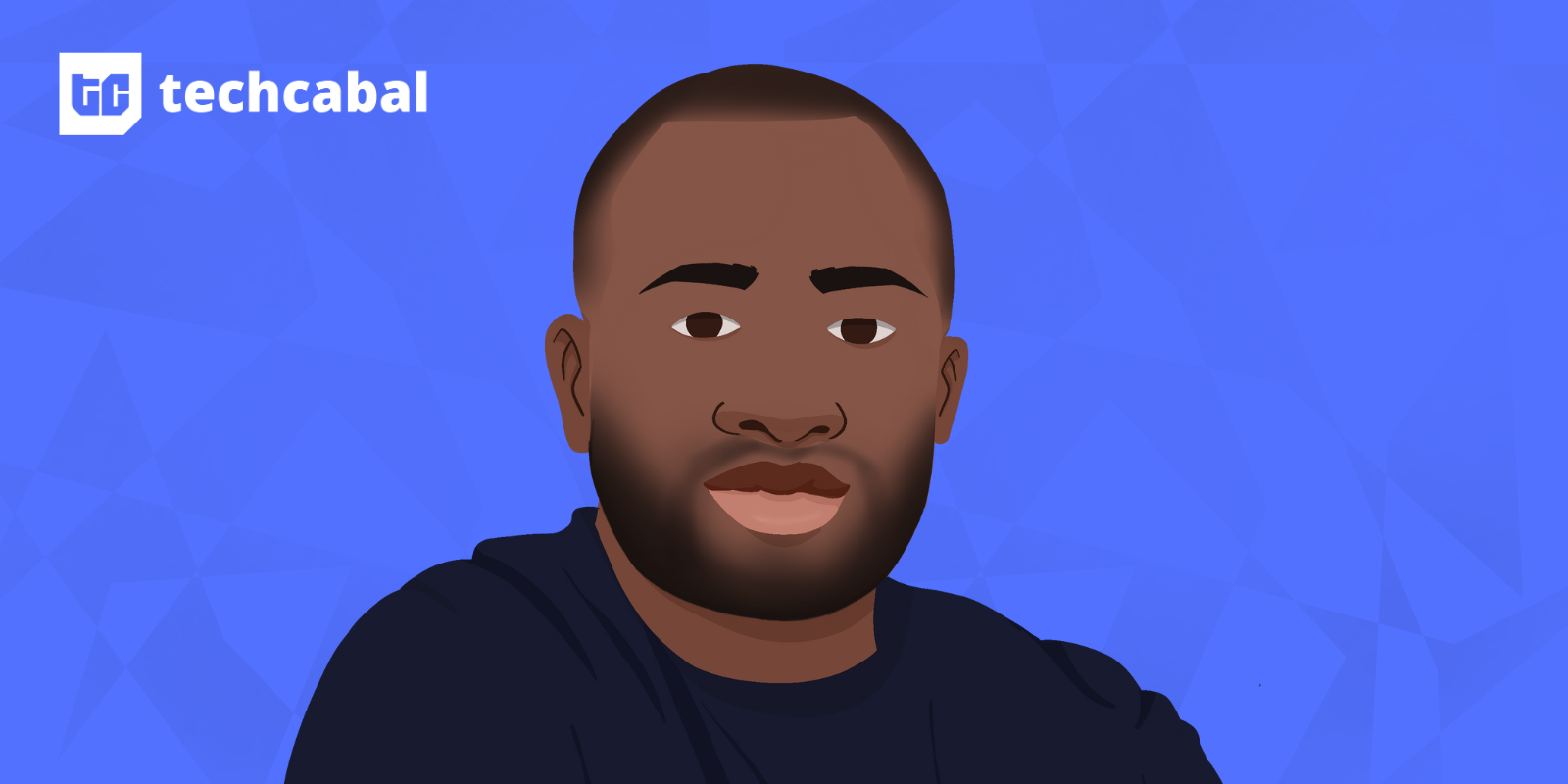Oswald Osaretin Guobadia got into tech at a time when most people, in his words, were “self-taught” in the then-budding tech ecosystem. His undergraduate degree was in biology, and he was on his way to getting a master’s degree in the field when his plans changed. This happened in 1997: he took up a summer job as an Information Technology Project Analyst with wealth manager, Credit Suisse. At the company, he worked with the infrastructure team to set up the bank’s cabling infrastructure and integrate its internal technology systems with external IT systems. His interest now arrested by tech, Guobadia decided to earn his master’s in telecommunications and computer science.
After almost a decade working in the US, including at Goldman Sachs, he returned to Nigeria in 2005, to join the United Bank of Africa as principal manager, enterprise networks. In this role, he standardised and improved the security of the bank’s networks.
Today, Guobadia has moved from being the hands-on engineering guy who worked on the backend of technology infrastructure, to being a policymaker. In August 2020, he was appointed by Nigeria’s outgoing president, Muhammadu Buhari, as senior special assistant on digital transformation. In June of the following year, he led the design and drafting of the Nigeria Startup Bill, now passed into law last October. The law is designed to protect the interests of startups and the government in the advancement of technological innovations.
In this episode of My Life in Tech, Guobadia discusses the thinking behind the Nigerian Startup Act, the state of infrastructure to support innovation, the need for e-governance, and lookaheads for the Nigerian tech ecosystem under the incoming Bola Ahmed Tinubu presidency.
Tell me about your leading the clamour for the Nigeria Startup Act. What specific pain points were you operating from?
I’ve been a project manager for a very long time. It’s one thing to be an engineer, it’s another to understand how to execute projects and programmes. I’ve been an entrepreneur in Nigeria for 16 years; I started my company in 2007. So I understand the difficulty involved in developing and executing ideas in Nigeria. Nigeria is VUCA+++ (volatile, uncertain, complex, and ambiguous). It’s very difficult to do business here. One of the reasons I came into government was because I was inquisitive as to what happens in government that makes doing business in Nigeria difficult. I wanted to learn.
What the Startup Act does is create an enabling environment for young people to feel confident enough to work on hard problems. Otherwise, our startups will focus on the easy problems, the problems you can easily do a valuation for, for which you can easily see an exit or market. But there are problems for which we can’t easily see a market because you’re creating a new market. And we may not get to those innovations, because they are difficult to do; not because the ideas are not there but because the environment is difficult. What the Startup Act does is create an enabling environment that makes it easy to address these problems.
Can you give me some examples of these problems for which we could be creating a new market?
I know banking the unbanked is an issue, but there are harder problems that digital technology could probably address—healthtech, agritech (I mean, real agritech, not in the Ponzi scheme way). You look at problems like fuel shortage—what’s the solution for that? I heard of a group of girls somewhere that were creating a scheduling app for the delivery of water, like Uber for water.
Even giving examples is difficult, because it’s just like everything else you hear about new ideas, like the iPhone; this is not how we thought phones should work, but then it was created and we go, oh, we always needed it!
What steps is the government you’re a part of taking to implement the NSB across the federation?
The implementation of the Act lies with the minister of communication and digital economy, specifically with the National Information Technology Development Agency (NITDA). The law itself is self-implementing; it basically gives instructions as to what should happen. The minister of communication and digital economy has gone ahead and created an implementation committee that is currently working on different aspects of the act. We’ve started a programme where we are trying to get states to adopt the act.
What’s this state adoption programme like?
The real impact on startups of the NSA happens at the state level. So it’s critical that every state adopts the act. It is up to them how they want to adopt it because states should compete globally with other countries, not against each other. What is key is that states adopt the Act and put together policies and incentives that will attract young people to them. I’m from Edo state, but maybe an idea I have will work best in Zamfara and Sokoto, so I will move to Zamfara and Sokoto because the policies there are best suited for my business. It should be that Nigerians have the mobility to execute their ideas all over the country, not just in Lagos.
We will definitely be going to every state and running programmes there. The ultimate idea is that when we are done with a state, there will be an ecosystem there. The next startup that impacts the world could start in a Nigerian village because you created the opportunity and environment for young people to develop ideas.
Are you worried that the infrastructural deficit in Nigeria will impact the rate at which states are able to domesticate the NSA and build attractive tech ecosystems in their domains?
No, because you have to start somewhere. If you Google Osun state and the Nigerian Startup Act, you’ll see what I’m trying to say: the government has waived right-of-way fees for cabling companies. If you start these programmes in every state, then the infrastructure problems will become something that makes sense to solve. Policy shows the posture of government, as in what it wants to do; and regulation shows you what you [should and] shouldn’t do.
Let me take you back to your intention in joining this government. You told me you wanted to learn about governance from the inside. Can you share your key learnings with me, now that your time in government draws to a close?
Collaboration and engagement with the government is one of the key ways to solve our problems. You can’t build anything, really, without the government. The truth of the matter is that, even some of the fintech stuff we have going now was because of certain policies that the Central Bank of Nigeria (CBN) had built that now led to us being able to find opportunities with fintech. If certain policies went the other way, we wouldn’t have a fintech market. You need government and you must continue to partner with and engage government in order to have a healthy ecosystem.
The other key learning for me is that politicians do listen. I think it’s a case of, what are we saying to politicians? Political will is driven by citizens’ sentiments. If we all agree that we want to do XYZ, and we all believe it together, it’s quite likely that the politician that we end up with will now take that as a political will. When we are not collaborating on a set of sentiments, then the political will has nothing to build on. It’s about understanding that all of us are Nigerians; people who enter government service or become politicians are not from Mars. We must continue to engage them to get the desired results.
The Nigeria Startup Act would not have happened without collaboration and engagement, [it] would not have survived and become what it is without continued and sustained citizen participation in the process. The Act is designed to have strong citizen participation through what we call the consultative forum, which will be a body of citizens from the sector. Before I came to government, if you’d asked me who the ecosystem is, I would have said it was me. But the ecosystem is made up of government, policymakers and founders; and if we are not engaged with each other, we will not have a healthy ecosystem.
Let’s linger a bit on your point about political will being driven by citizens’ sentiments. I’m thinking of the Nigerian government’s ban on crypto, under Buhari, in 2021, despite the country being one of the fastest crypto-adopting economies in the world. Why wasn’t the government listening to the people regarding this innovation then? How would you address that issue now, at this moment?
When you are building a startup, you’re disrupting how things work. Let’s say, it takes 100 people to change a lightbulb, and I build a solution that makes it possible for just one person to change that lightbulb, that is disruption, right? What the policymaker sees is not disruption, but displacement; there are now 99 people who don’t have a job. Policymakers are meant to protect what exists. Without collaboration and engagement, there is no way for the policymaker to understand that, although that disruption has enabled just one person to change the lightbulb, it should now be in their business plan to make 99 other light bulbs, because they know that the inefficiency is that the room [where the one lightbulb is] is too dark. So now we have 100 lightbulbs, and each person gets their own lightbulb to change. But if innovators and the government are doing things separately and the policymaker is ignorant of what the innovator is doing, he will ban the innovation. In Nigeria, everybody is creative and entrepreneurial; it’s one of our greatest traits. But while you’re going entrepreneurial, you must consider the impact towards what exists because our economy is not that deep. Small things that happen with finances affect bigger things.
What can you tell me about the government’s recent approval of a national blockchain policy?
Policy and regulation is that the audit should be done in a collaborative manner. I’d like to believe that the people in the blockchain ecosystem are involved in conversations with the policy’s development. What the policy statement says is what the government intends to do with certain technology. However, I come from the school of thought that, even with new technology, we have to get our infrastructure right first. What tends to happen in economies like ours is, we believe we must leapfrog. Machine learning, AI; these are all new technologies that need to sit on existing infrastructure.
The new government should focus on ensuring that we have the right infrastructure in place; that we have access to connectivity in government, the private sector and rural areas; that we have e-governance in place; and that citizens can access the government over the internet. We have to move away from paper and do governance on digital platforms. Right now, governance is still heavily reliant on paper. How do we talk about blockchain and AI when even the policy on it is moved around on paper?
Look at it as a three-stack approach: infrastructure, digitisation, and virtualisation. Infrastructure covers things like cabling, data centres, networks, and wireless connectivity. Digitisation is when you convert [analogue] processes into digital form; then I can pay my taxes online, access my bank accounts with one unique number, and apply for a licence without having to go see anybody in an office.
Virtualisation—not to be confused with server virtualisation—is a higher stack where all these other things fall into place. How do you use all the data—AI and machine learning—that you have moved from manual to digital? That’s what machine learning is. But how is AI going to get information that is stored on paper, in a warehouse, for the last 50 years? So, when you say AI in Nigeria, what exactly are you training the machine to do? How is AI going to get information that is not digitised?
Does that mean our current infrastructure deficit worries you, then?
I don’t say this to burst the bubble of new technology. What I’m saying is from a programme manager and engineering perspective. Blockchain technology is resource-intensive: where is that resource going to come from, when you haven’t built enough data centres that the cost of hosting data drops?
Also, the market for some of our startups is truncated. The market is huge, but the addressable market is truncated because of our paper problem. You cannot sell fintech to somebody that wants to go into a bank branch, because they want “to sign”. You also want to think about the education of the citizens, so that they understand they are going digital.
Look at every other country that has moved into the digital space successfully—Estonia, Dubai—they built the infrastructure to support new technologies. Otherwise, what you’ll have is taking the data and putting it on somebody else’s server, which is the problem we’ve had with every other resource in Africa. We take our oil, we don’t refine it, we take it out. If you take your data and put it on somebody else’s server, is that not refining? Why would we want to repeat that mistake?
My Life in Tech (MLIT) is a biweekly column that profiles innovators, leaders, and shapers in the African tech ecosystem, with the intention of putting a human face to the startups and innovations they build. A new episode drops every other Wednesday at 3 PM (WAT). If you think your story will interest MLIT readers, please fill out this form.



















